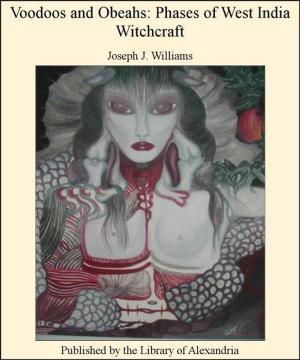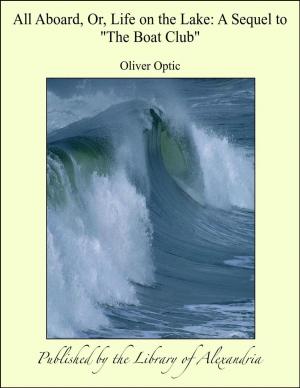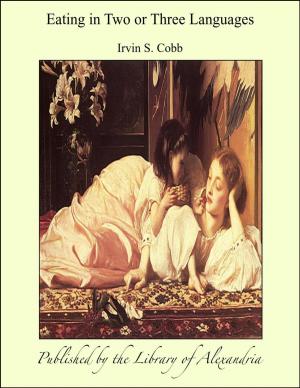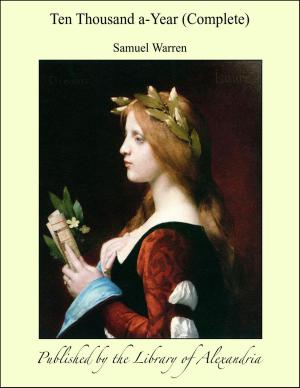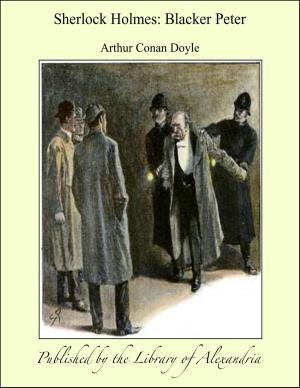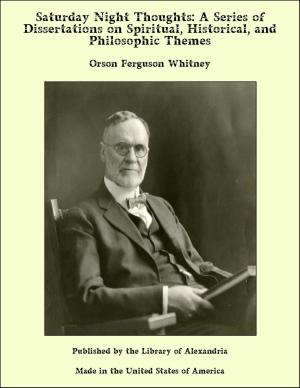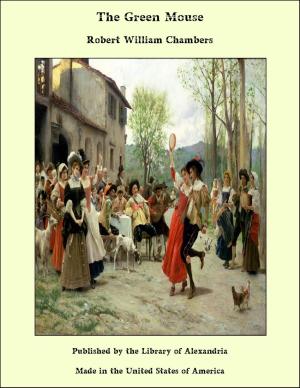The Best Psychic Stories
Nonfiction, Religion & Spirituality, New Age, History, Fiction & Literature| Author: | Various Authors | ISBN: | 9781465523327 |
| Publisher: | Library of Alexandria | Publication: | March 8, 2015 |
| Imprint: | Language: | English |
| Author: | Various Authors |
| ISBN: | 9781465523327 |
| Publisher: | Library of Alexandria |
| Publication: | March 8, 2015 |
| Imprint: | |
| Language: | English |
The case for the "psychic" element in literature rests on a very old foundation; it reaches back to the ancient masters,—the men who wrote the Greek tragedies. Remorse will ever seem commonplace alongside the furies. Ever and always the shadow of the supernatural invites, pursues us. As the art of literature has progressed it has grown along with it. To-day there is a whole new school of writers of Ghost-Stories, and the domain of the invisible is being invaded by explorers in many paths. We do not believe so much more, perhaps, that is, we do not so openly express a belief, but art has finally and frankly claimed the supernatural for its own. One discerning authority even goes so far as to assert that the borders of its domain will be greatly enlarged in the wonderful new field of the screen. There is no motive in a story, no image in poetry, that can give us quite the thrill of a supernatural idea. If we were formally charged with this we might resent the imputation, but the evidence has persisted from the beginning, lives on every hand, and multiplies daily. What we have been in the habit of calling the "machinery" of the old Greek drama—its supernatural effects—has come finally to be an art cultivated with care at the present hour, and has given us some wonderful new writers. In fact, few of the best masters for a generation now have been able to resist its persistent and abiding charm. Every writer of true imagination, almost without exception, including even certain realists, has given us at least one story, long or short, in which the central motive is purely psychical in the Greek sense of the word. The whole subject opens up a virgin field which has after all only begun to be tilled. Within the coming generation we may look for great artists to devote their whole powers to it, as Algernon Blackwood is doing to-day. A simple underlying reason is enough to account for it all—the new field imposes simply no limit on the imagination. In addition to all that science has taught us, there is illimitable store of myth and legend to aid, to draw from, to work in, to work over, as Lord Dunsany has shown us. It is the most significant movement in literature at the present hour, and whether it is supported by a special background of interest—as at present in spiritism—or not, the assertion is logical that it is creating a new body of fictional literature of permanent importance for the first time in the history of literature. The human comedy seems to have been exploited to its final limits; as the art of the novel, the art of the stage, but too sadly prove to-day. We have turned outward for new thrills to the supernatural and we are getting them. It only remains to be added that the present great interest in spiritualism and allied phenomena has made necessary the addition of certain material of a "literal" character which we believe will be found quite as interesting by the general reader as the purely literary portion of the book
The case for the "psychic" element in literature rests on a very old foundation; it reaches back to the ancient masters,—the men who wrote the Greek tragedies. Remorse will ever seem commonplace alongside the furies. Ever and always the shadow of the supernatural invites, pursues us. As the art of literature has progressed it has grown along with it. To-day there is a whole new school of writers of Ghost-Stories, and the domain of the invisible is being invaded by explorers in many paths. We do not believe so much more, perhaps, that is, we do not so openly express a belief, but art has finally and frankly claimed the supernatural for its own. One discerning authority even goes so far as to assert that the borders of its domain will be greatly enlarged in the wonderful new field of the screen. There is no motive in a story, no image in poetry, that can give us quite the thrill of a supernatural idea. If we were formally charged with this we might resent the imputation, but the evidence has persisted from the beginning, lives on every hand, and multiplies daily. What we have been in the habit of calling the "machinery" of the old Greek drama—its supernatural effects—has come finally to be an art cultivated with care at the present hour, and has given us some wonderful new writers. In fact, few of the best masters for a generation now have been able to resist its persistent and abiding charm. Every writer of true imagination, almost without exception, including even certain realists, has given us at least one story, long or short, in which the central motive is purely psychical in the Greek sense of the word. The whole subject opens up a virgin field which has after all only begun to be tilled. Within the coming generation we may look for great artists to devote their whole powers to it, as Algernon Blackwood is doing to-day. A simple underlying reason is enough to account for it all—the new field imposes simply no limit on the imagination. In addition to all that science has taught us, there is illimitable store of myth and legend to aid, to draw from, to work in, to work over, as Lord Dunsany has shown us. It is the most significant movement in literature at the present hour, and whether it is supported by a special background of interest—as at present in spiritism—or not, the assertion is logical that it is creating a new body of fictional literature of permanent importance for the first time in the history of literature. The human comedy seems to have been exploited to its final limits; as the art of the novel, the art of the stage, but too sadly prove to-day. We have turned outward for new thrills to the supernatural and we are getting them. It only remains to be added that the present great interest in spiritualism and allied phenomena has made necessary the addition of certain material of a "literal" character which we believe will be found quite as interesting by the general reader as the purely literary portion of the book


